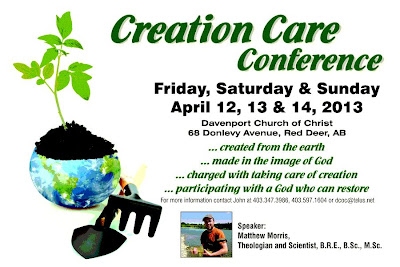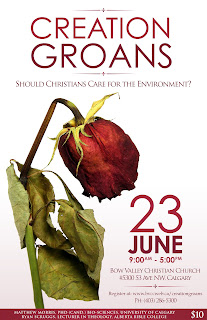[Editor's Note: this post was edited for clarity in the paragraph following the quote from Augustine.]
This post was inspired by a blog post published on March 7, 2014, by Douglas Wilson. I would encourage you read it at Blog and Mablog (which, by the way, is the greatest blog name ever) before you continue. My article begins by laying a foundation and then responds to his seven points.
This post was inspired by a blog post published on March 7, 2014, by Douglas Wilson. I would encourage you read it at Blog and Mablog (which, by the way, is the greatest blog name ever) before you continue. My article begins by laying a foundation and then responds to his seven points.
Theses
The created
world is as much the word of God as scripture, and they both have the same
author. We call the created world “general revelation” and scripture “special
revelation” (and usually forget Christ and the Holy Spirit in our simplistic
dichotomy of revelation, but that is another story for another day). To dismiss
nature as fallen, and therefore unreliable, is to deny its status as general
revelation at all. If sin so marred
nature as to make its lessons untrustworthy, then any revelation that it does
provide cannot be trusted. The psalmist’s assertion that creation declares the
glory of God (fallen creation, with
its suffering?) or Paul’s belief that those who reject God are without excuse
because creation itself declares God, must simply be wrong in a chaos-strewn
fallen world. But these declarations are found in special revelation, the
source of revelation that is generally considered unfallen and reliable – is there
not a tension here?







